Matt Joyce | May 3, 2023
TXST archaeology students get hands-on experience surveying ancient sites in Big Bend National Park
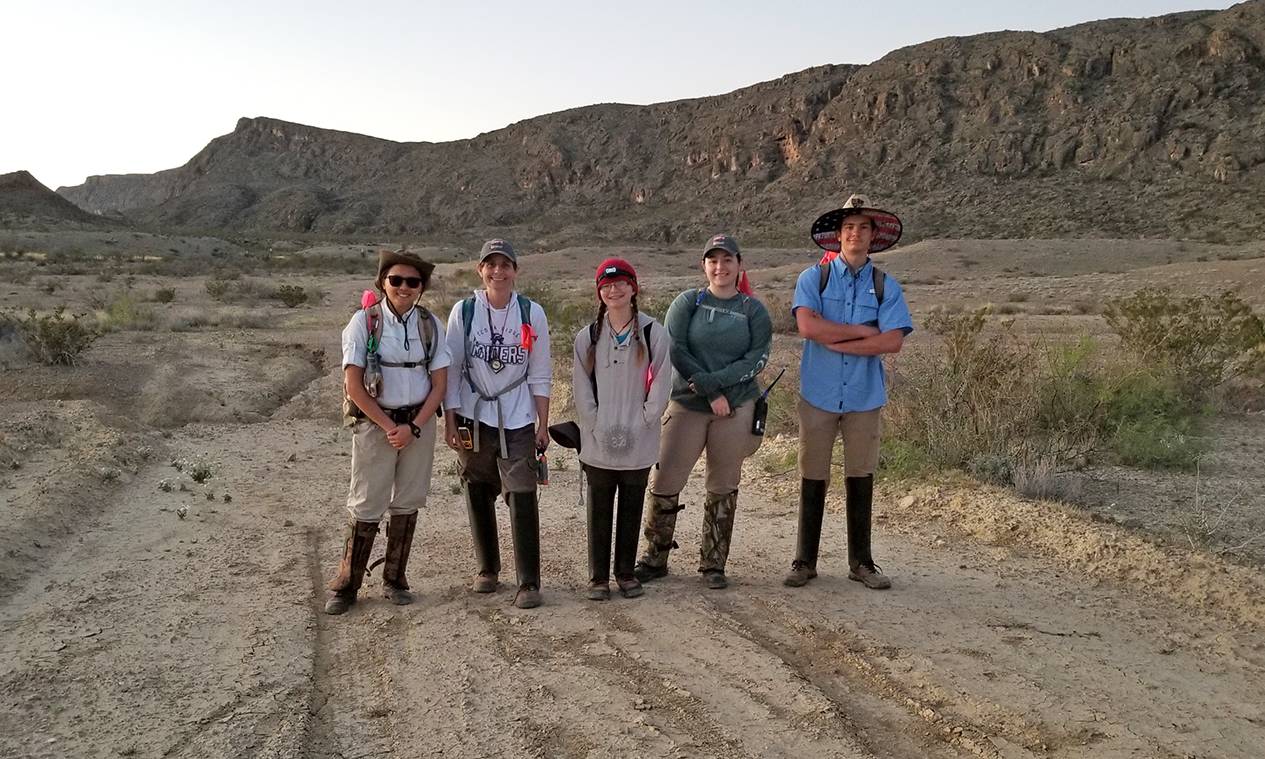
Big skies, big stars, and a big archaeology project — all in Big Bend National Park.
Texas State University’s Center for Archaeological Studies (CAS) traveled to West Texas this spring to survey archaeological sites across 18,896 acres on the national park’s western border. The students camped, explored the rugged Chihuahuan Desert, and earned paid experience working on a National Park Service cultural resources management project.
Split into two crews, the group of two faculty members, one CAS staff member, and six students were charged with assessing the condition of about 40 recorded archaeological sites. The crews hiked multiple miles per day to access sites including rock shelters, stone rings, hearth ruins, candelilla wax factories, and farms and ranches.
“I appreciate learning through doing,” said Kaylee Gaumnitz, an archaeology student who is completing her master’s degree this semester. “The project was a great opportunity to integrate students into real-world work experiences. The crew worked well together — from helping each other climb around rocky impasses, surviving windy nights in tents, and roasting marshmallows over a lighter, it was a memorable crew.”
Senior anthropology student Boone Beyer said the work involved evaluating previously recorded sites to see how much they’d been damaged by erosion, people, or other factors.
“I learned about the history of the area, and I learned how to identify certain archaeological features,” Boone said. “Even with my lack of experience, I could still help the crew more than I expected. The experience has given me more field experience than many of my classmates and thus an edge in class and in the future in job opportunities.”
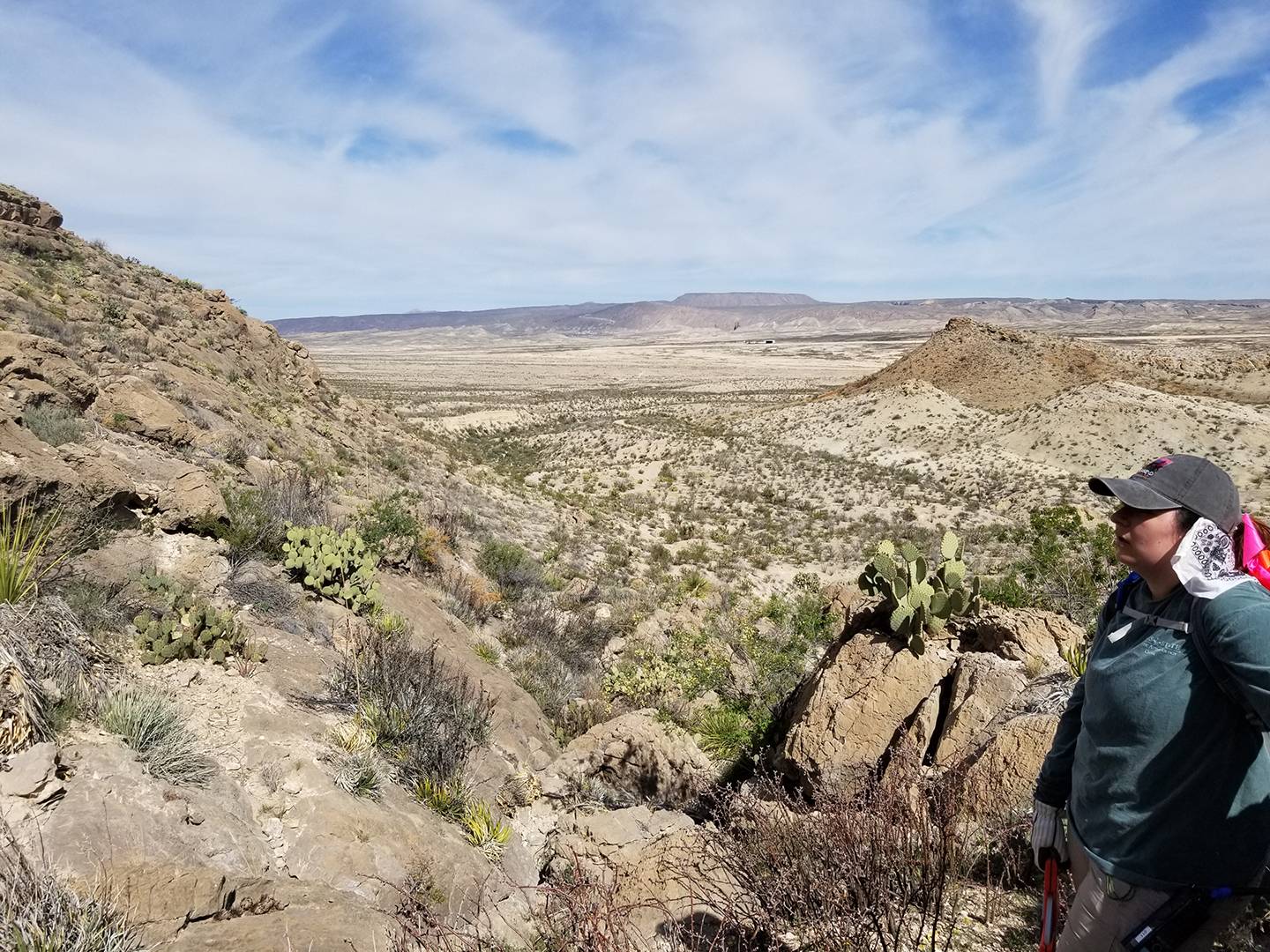
CAS landed the job through the Cooperative Ecosystem Studies Units (CESU), a national consortium of government agencies, academic institutions, and other nonprofit partners. Through the CESU, entities like Big Bend National Park work with expert nonprofit partners for jobs that also provide educational opportunities.
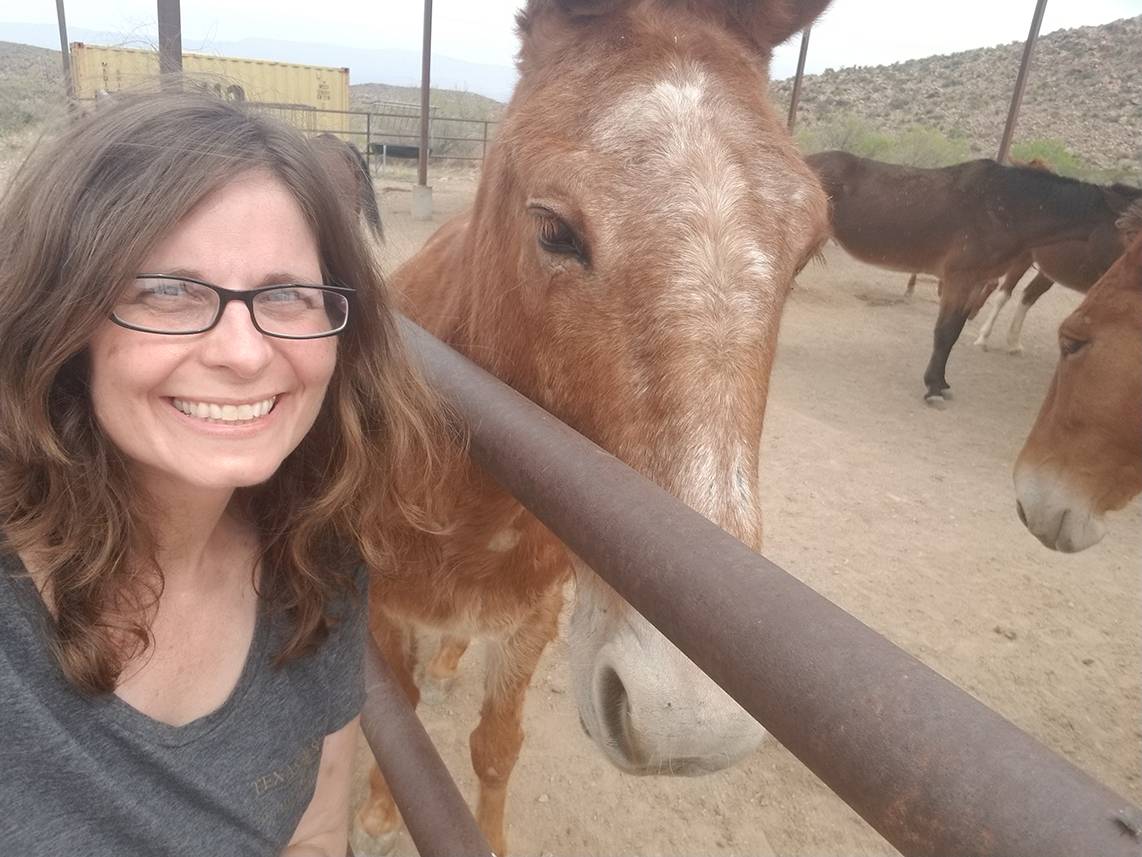
Dr. Jodi Jacobson, associate director of CAS and the principal investigator on the Big Bend project, said most current archaeology jobs are in cultural resource management, which means working to help governments or agencies comply with regulations to protect archeological sites on their lands. CAS has also worked on CESU jobs for the U.S. Army Corps of Engineers and on military bases.
“We’re trying to provide an avenue for our students to learn hands-on about all parts of cultural resource management,” Jacobson said. “A lot of cultural resource management firms will hire on temporary field techs for their jobs. What we do is we make sure our field techs are students who are getting that experience.”
In the case of Big Bend, the national park needed updated surveys because the sites had not been reviewed for five to 10 years, Jacobson said. CAS faculty and students are preparing reports on their observations of risks or damages to the sites, as well as updated measurements of the sites’ sizes and locations. This summer, faculty and students will prepare recommendations for the sites’ continued protection. Gaumnitz said she found the preparation for the survey trip particularly insightful.
“Seeing how much Dr. Jacobson prepared before we went into the field gave me a better understanding of what needs to happen on the front end of a project to make it run,” Gaumnitz said. “Specific to archaeology, this project helped me learn how to better identify prehistoric campsites. One thing I want to know more about is what happens next with the recommendations we made for the area. I’m hoping the next steps involve preservation.”
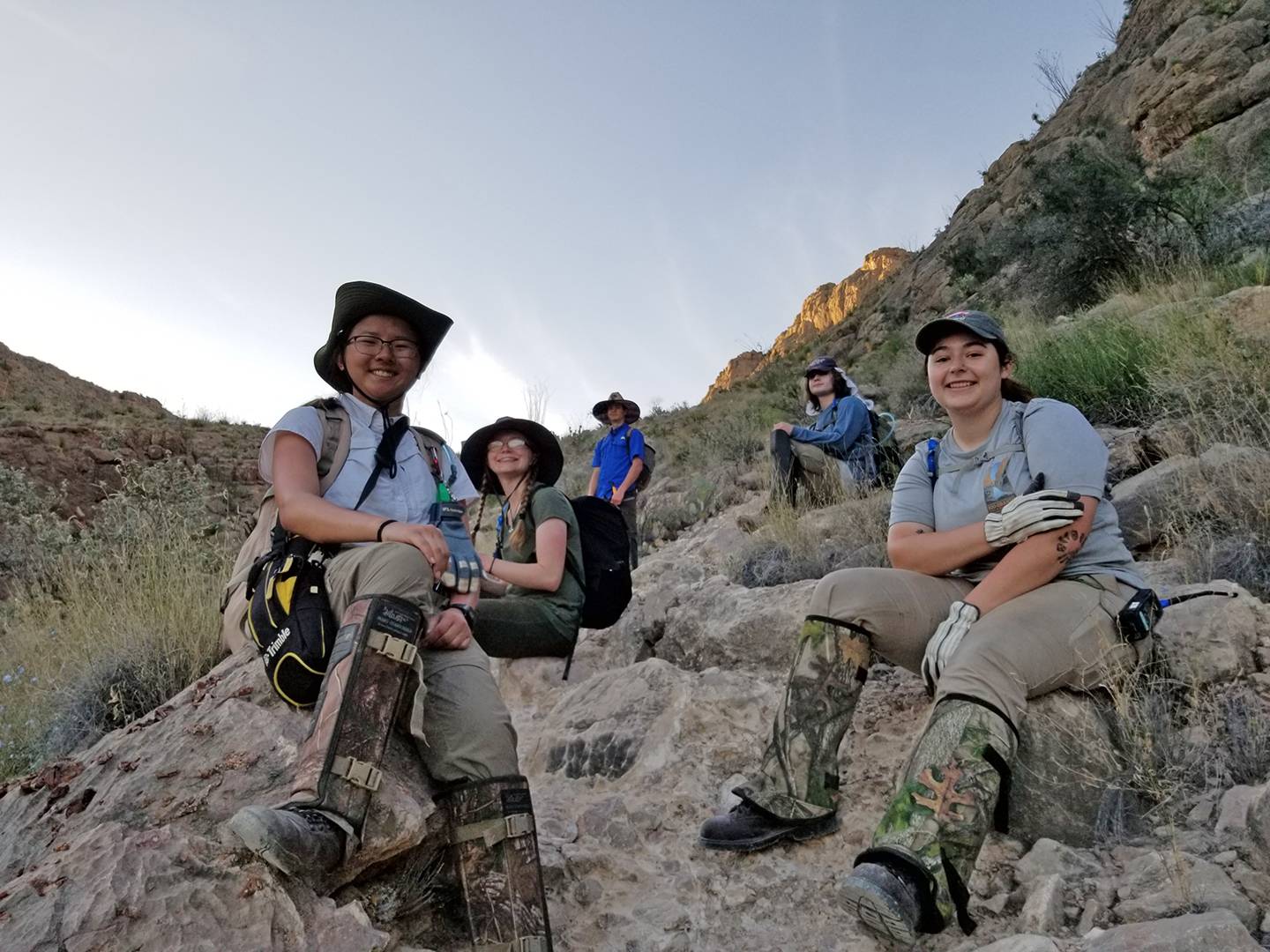
Aside from the benefits of education and real-world experience, the participants all remarked on the grandeur of spending a week to 11 days in Big Bend — the brilliant stars and the desert sunrises, the steep terrain and campsite camaraderie.
“This is one of the more rugged jobs I’ve done, and I thoroughly enjoyed it,” Gaumnitz said. “It was a great opportunity to unplug and get outside. I’ve worked in West Texas before, and I love the terrain, even though it can be unforgiving.”
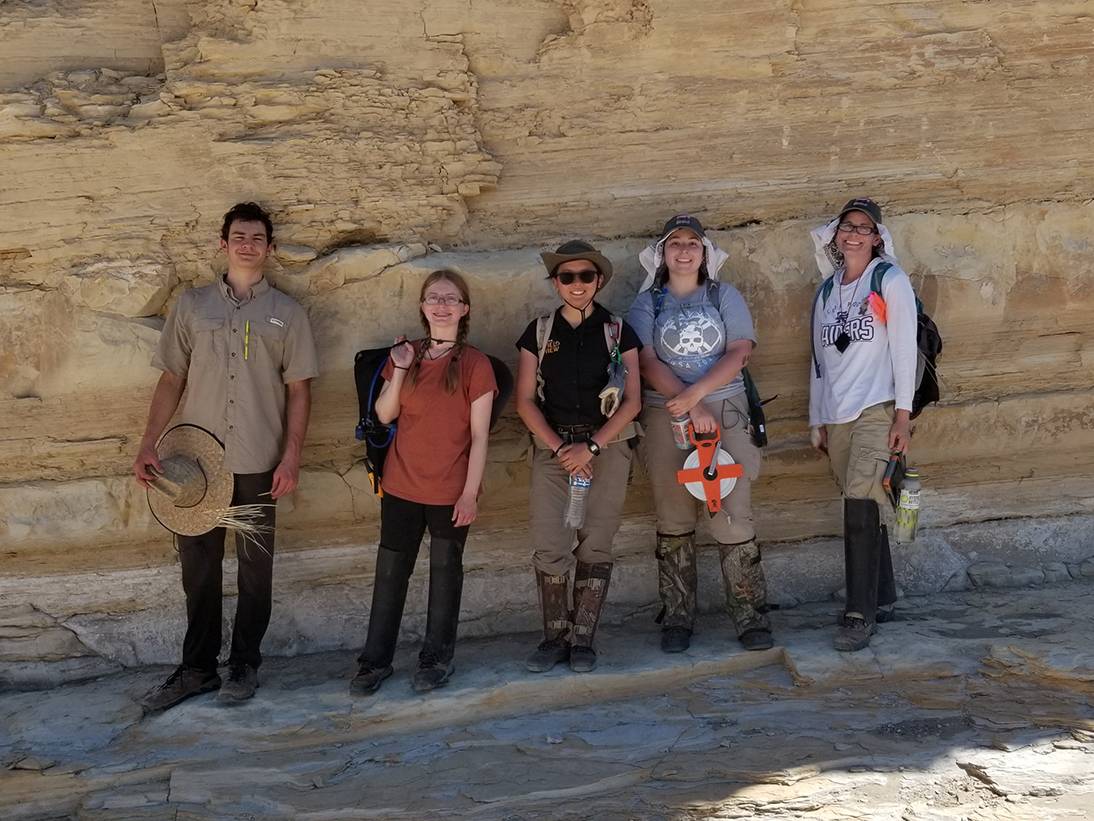
Share this article
For more information, contact University Communications:Jayme Blaschke, 512-245-2555 Sandy Pantlik, 512-245-2922 |
